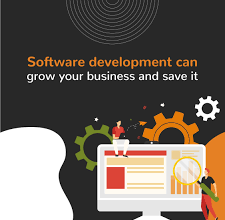Everything You Need to Know Before Investing in Lottery Software Development
Discover key insights, legal tips, and essential features to consider before investing in lottery software development for a successful digital launch.

If you’re thinking about investing in lottery software development, there’s more to consider than just code and graphics. It’s a mix of business strategy, legal awareness, user experience, and ongoing support. Whether you’re building from the ground up or upgrading an existing platform, partnering with a reliable lottery software development company can make a huge difference in turning your idea into a successful product. This blog will walk you through the key things to think about before putting your money into a lottery software project.
1. Understand the Market First
Before you dive into the tech side of things, take a moment to look at the bigger picture. Ask yourself:
- Who is your target market?
- Is your audience regional or international?
- Are you planning to offer traditional number draws, instant games, or something new?
Understanding the habits and preferences of your potential users is the first step in deciding what kind of software to build. Some regions prefer simple, traditional draws, while others are looking for fast-paced mobile-based games. A good fit for one audience might flop completely with another.
2. Be Clear About Your Business Model
Lottery software can serve different purposes depending on your business goals. Are you:
- Starting your own online lottery business?
- Looking to digitize an existing offline lottery?
- Planning to license your platform to others?
The answers to these questions will shape everything from the software’s core features to how it’s maintained. Some businesses rely on ticket sales alone, while others generate income through advertising, affiliate partnerships, or B2B services.
You need to know how you’ll make money and how your software will support that.
3. Legal and Compliance Considerations
This is an area you absolutely cannot afford to overlook.
Lottery laws vary wildly from country to country and sometimes even within different regions of the same country. Some governments tightly regulate lotteries and require licenses, while others outright ban them.
Make sure to consult with legal professionals who understand both gaming and online business. You’ll need to consider:
- Licensing requirements
- Age verification rules
- Responsible gambling practices
- Data protection laws
Building a great product is pointless if you’re not legally allowed to operate it.
4. Choose the Right Development Partner
Whether you’re starting from scratch or modifying an existing product, the team you work with will make or break your project.
When comparing different lottery software providers, ask for more than just a feature list. Look for companies with actual experience in the space teams that can help you navigate user behavior, regulations, security concerns, and backend scalability.
Ask these questions:
- How long have they been working on lottery projects?
- Do they offer ongoing support and maintenance?
- Can they show real-world case studies?
You’re not just buying software, you’re starting a long-term relationship with whoever builds it.
5. Focus on Security and Fairness
If there’s one thing players demand from lottery games, it’s trust.
Your software must be able to demonstrate that draws are random, fair, and tamper-proof. Most players won’t know the difference between SHA-256 and MD5 hashing but they’ll know if something seems off.
Here are some key features to ensure fairness and security:
- Random number generators (RNGs) that are independently audited
- Secure payment gateways and data encryption
- Admin controls to monitor and detect fraud
- Transparent reporting for players and regulators
Neglect this part, and you risk losing your users and your license in one go.
6. Don’t Skimp on the User Experience
Some businesses still treat lottery apps and sites like utility tools—bland interfaces, clunky buttons, no sense of excitement. That’s a mistake.
People play lotteries for the thrill, the anticipation, and the entertainment. Your design and interaction choices should reflect that. Keep it fun, but also easy to use.
Features to consider:
- Mobile-first design
- Simple onboarding
- Notifications for results and promotions
- Social sharing options
- Gamified elements like reward tiers or challenges
Your app doesn’t need to look like a casino game, but it should still engage the user at every step.
Must Read – Cross-Platform Casino Games: Build Once, Deploy Everywhere
7. Think Long-Term: Maintenance, Updates, and Support
Software isn’t a one-and-done deal. Bugs show up. Laws change. New devices are released. Users ask for new features. That’s just part of the game.
That’s why it’s smart to work with lottery management software providers who offer ongoing updates and support. You don’t want to be stuck with an outdated platform just a year after launch.
Make sure your system can grow with you whether that means adding new types of games, integrating payment options, or expanding into new markets.
8. Analytics and Admin Tools Matter
It’s easy to focus only on what the user sees. But the backend of the admin dashboard is just as important.
You need clear, real-time data on:
- Ticket sales
- Active users
- Game performance
- Conversion rates
- Withdrawal and deposit trends
Good admin tools help you make informed decisions, spot problems early, and respond quickly to user behavior.
9. Start Small, Scale Smart
Many new businesses get overwhelmed trying to launch a full-featured platform from day one. That’s risky and expensive.
Instead, consider building a Minimum Viable Product (MVP), a simplified version with just the essential features. Launch it with a smaller audience, learn from their behavior, then grow from there.
This approach lets you test the waters without draining your resources. You’ll also get valuable feedback that can shape your long-term roadmap.
Also Read – White Label Sportsbook & Sports Betting Solution Providers
Final Thoughts
Investing in lottery software development is not just about having a good idea, it’s about execution, planning, and keeping the end-user at the center of every decision. Whether you’re launching a new business or upgrading an existing one, take your time to get it right.
And remember: not all lottery software development company options are created equal. Do your research, know your audience, and make choices based on long-term vision, not just short-term trends.




